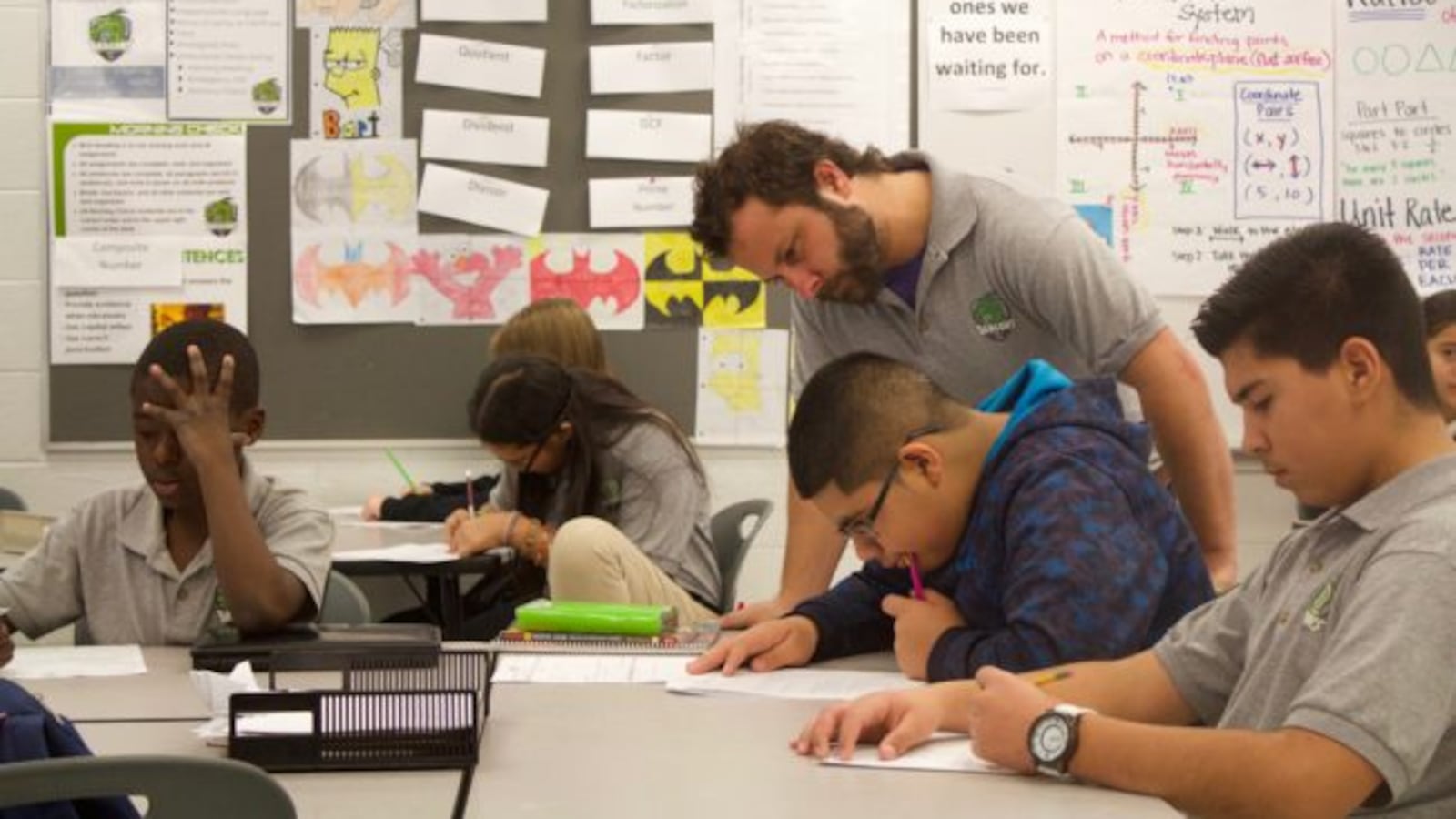High-achieving Denver-based charter school network DSST is one step closer to expanding into Aurora after school district staff recommended school board approval of four new schools.
School board members asked few questions at Tuesday night’s board meeting. Although some had previously raised questions about the way Superintendent Rico Munn had singled out DSST as a potential partner and offered it a building, most applauded the charter approval process.
“I appreciate the whole process from the get-go, from being a focused effort on Superintendent Munn’s part to seek out a partnership that is part of our transformation in the district to the new process,” said Amber Drevon, the school board president. “I just think we have a huge opportunity here. I see this whole thing changing the relationship that we have with charter schools and how we deal with them and how we best work together to support students.”
The school board will vote on the charter application at its June 20 meeting.
DSST is known for intentionally seeking to build racially integrated schools, high state test scores and getting all of its students accepted into four-year universities. The network runs four of the five top high schools in Denver and has earned national attention, leading to donations from Bill Gates and Oprah Winfrey.
DSST currently educates about 5,000 students and is planning to expand within Denver to operate 22 schools by 2024. The Aurora schools would be the network’s first outside of Denver.
Aurora’s school district has not traditionally been known as friendly to charter schools, adding to the significance of the planned expansion there.
Aurora officials made some changes this year to the way the district reviews charter school applications having each go through a new Charter School Advisory Committee as well as the usual District Accountability Committee. There is now a minimum of three internal and external reviewers per subject.
The evaluations found DSST’s application met the bar in every one of its 20 sections including on budget, transportation, waivers and engagement. The application scored the highest in sections related to parent and community involvement. It was partially proficient in three of 20 sections, but Aurora officials explained to the board that there were valid explanations for those lower scores.
In one section, for instance, on budget, DSST received a lower score because its budget included a large amount of money coming from grants and fundraising. Districts often want charters to have conservative budgets with money that is guaranteed. But DSST officials were able to point to a track record of fundaising support for its programs.
Another section on facilities was scored low because DSST didn’t yet have many details about where it would locate. But district officials explained they wouldn’t expect DSST to go look for a building, given the offer that the district extended to the charter operator to construct a new building.
Board members on Tuesday asked questions about the school’s philosophy and about whether the charter network might be willing to waive appeal rights in case the district ever closed the charter schools for performance reasons or for losing state accreditation.
Bill Kurtz, the CEO of DSST, said that was a legal question he wouldn’t respond to, but said he would hope the situation never came up.
Under the DSST charter application, the network would start by opening a middle school in the fall of 2019, starting with 150 sixth graders. The school would add a grade level each year until having a middle school serving sixth through eighth grades and a high school serving ninth through 12th graders. A second campus would start the same way opening in the fall of 2021, starting with a middle school and building up to the addition of a high school.
The network’s new schools in Aurora would likely have a different name; DSST stands for the Denver School of Science and Technology.
Under Munn’s original proposal inviting the charter network into Aurora, the school district would pay for up to half of the cost of a new district-owned building and allow DSST to use it if the charter network came up with the rest of the money.
DSST officials responded that they would assist with fundraising to complete the building, but that they believe the school district should take the lead.
The recommendation presented Tuesday for approval of the charter schools does not detail any amounts the district and the charter network would each be responsible for raising but sets a deadline of March 30 for raising all the money needed. A total cost has not been updated, but at the time of the proposal the district estimated their cost between $15 million and $23 million.
“In conjunction with APS, fundraising dollars will be secured to construct an APS facility adequate to house the middle and high schools envisioned in the first campus,” the proposed resolution states. “In the event necessary fundraising dollars are not obtained, applicant will be given the opportunity to seek other options to secure a facility.”
The district’s portion of the funding for a DSST building will come from bond money approved by voters in November. At an update on bond projects earlier this spring, district officials told the board early work was underway for designs of the building in consultation with DSST.

